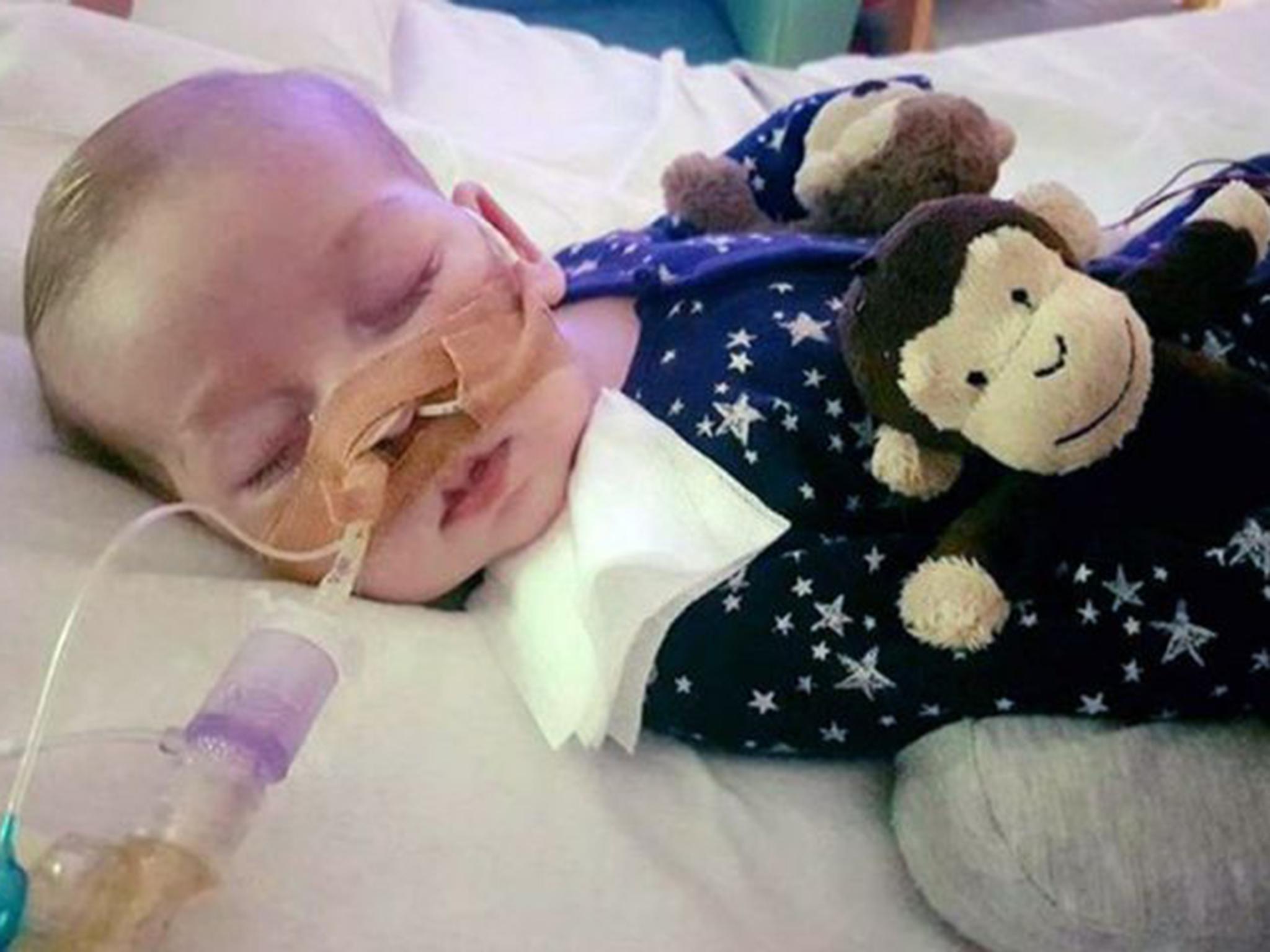Charlie Gard's doctors should be allowed to turn off baby's life support, appeal court judges rule
Charlie suffers from mitochondrial disease that leads to progressive muscle weakness and brain damage

Doctors should be allowed to stop life-support treatment for a sick baby who needs a ventilator to breathe, appeal court judges have ruled.
Charlie Gard suffers from a form of mitochondrial disease that leads to progressive muscle weakness and brain damage.
His parents, Chirs Gard and Connie Yates, have fought a legal battle to keep their son alive long enough to take him to the US for experimental treatment that may prolong his life.
The couple has raised £1.3m to send him to the US, but doctors at Great Ormond Street have argued continuing any life-support treatment would not benefit Charlie and would just "prolong the process of dying".
Last month, a High Court judge ruled in favour of the doctors and Mr Gard and Ms Yates chose to appeal the judgement.
Richard Gordon QC, who led Charlie’s parents’ legal team, told judges the case raised significant legal issues about the role of the state.
“They wish to exhaust all possible options. They don’t want to look back and think ‘What if?’. This court should not stand in the way of their only remaining hope,” Mr Gordon said in a written outline of the case.
Katie Gollop QC, who led Great Ormond Street’s legal team, suggested the treatment in the US was “experimental” and would give Charlie “no benefit”.
“There is significant harm if what the parents want for Charlie comes into effect,” she told the appeal judges, The Guardian reported.
“The significant harm is a condition of existence which is offering the child no benefit.”
Ms Gollop also claimed it was not possible to tell if Charlie was in pain due to the "ravages of [his] condition".
"He cannot see, he cannot hear, he cannot make a noise, he cannot move,” she said.